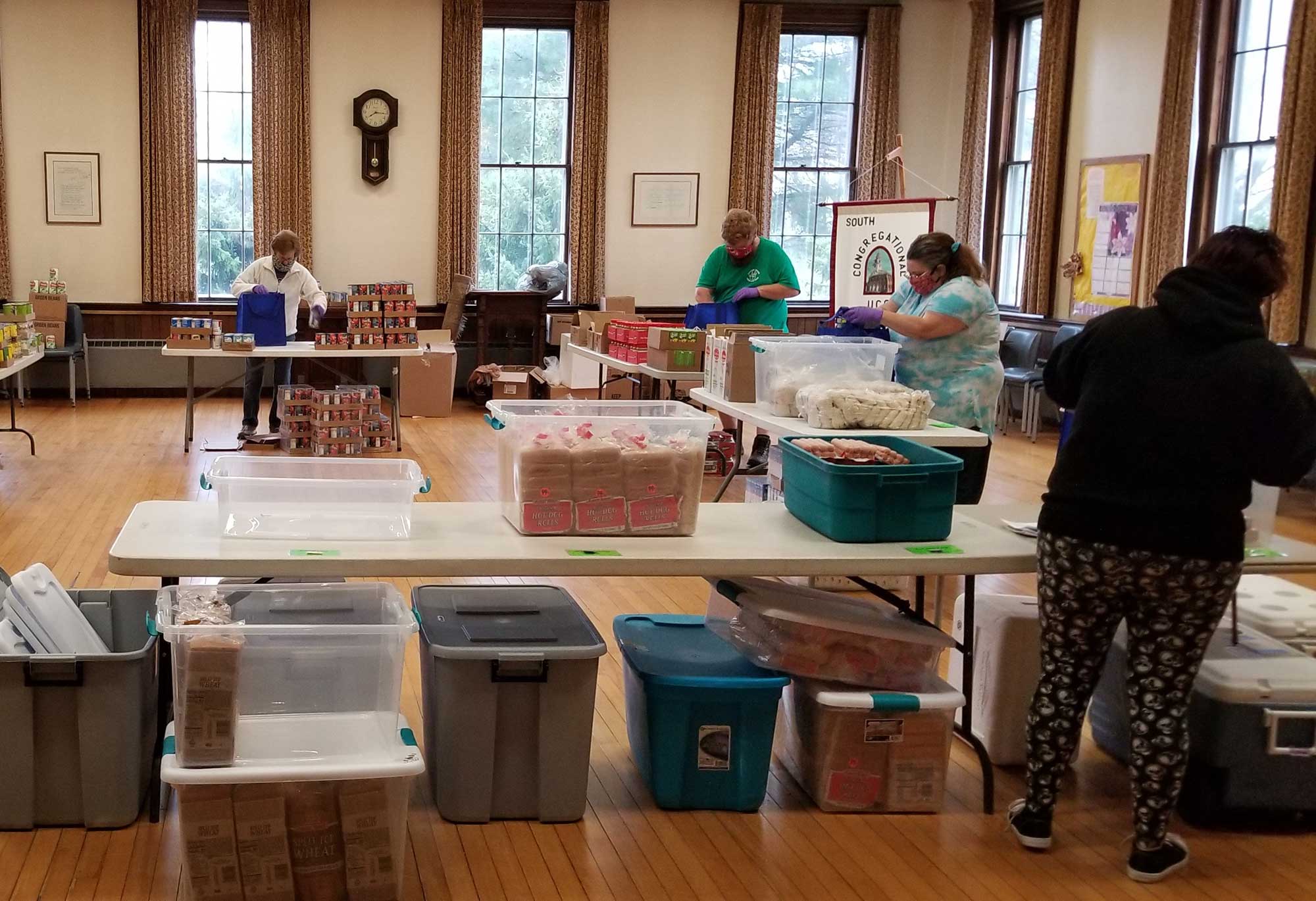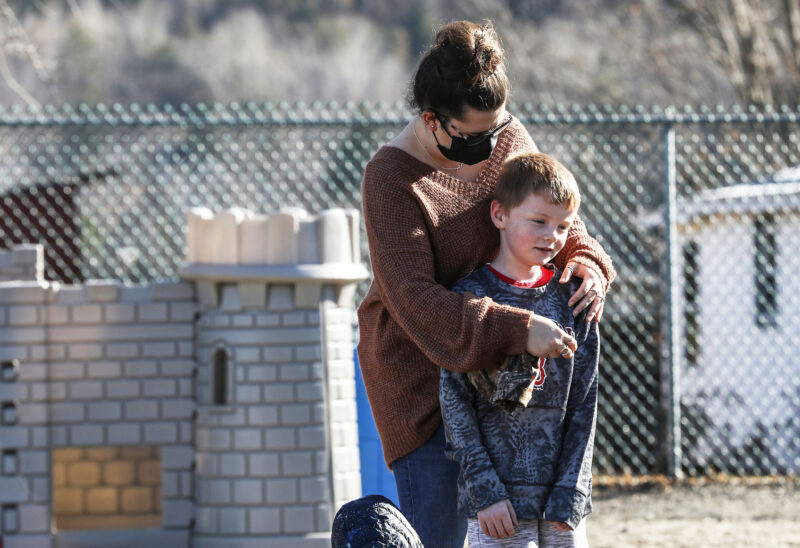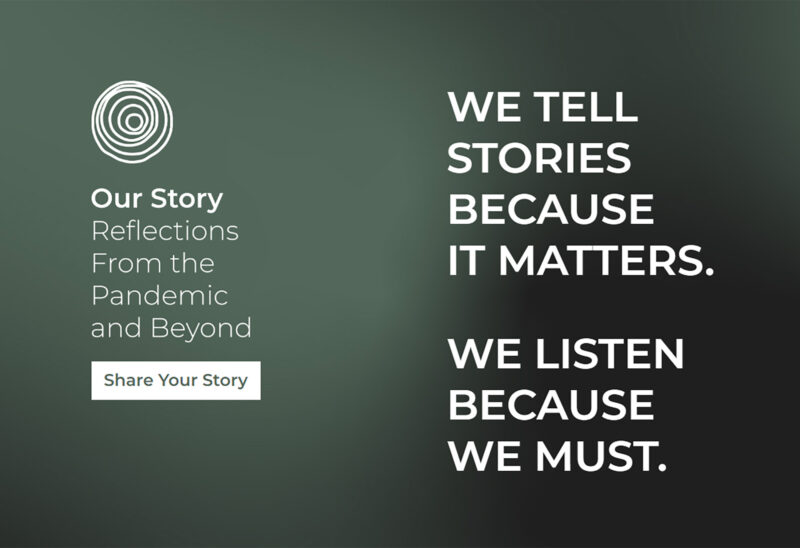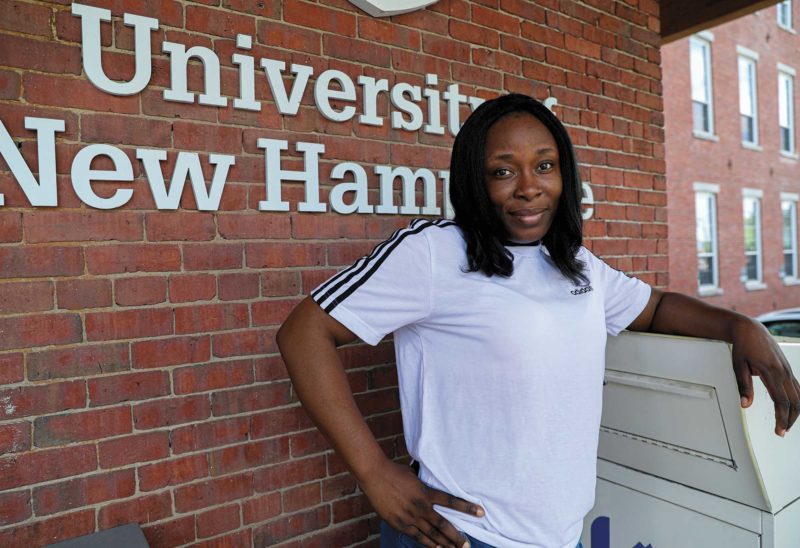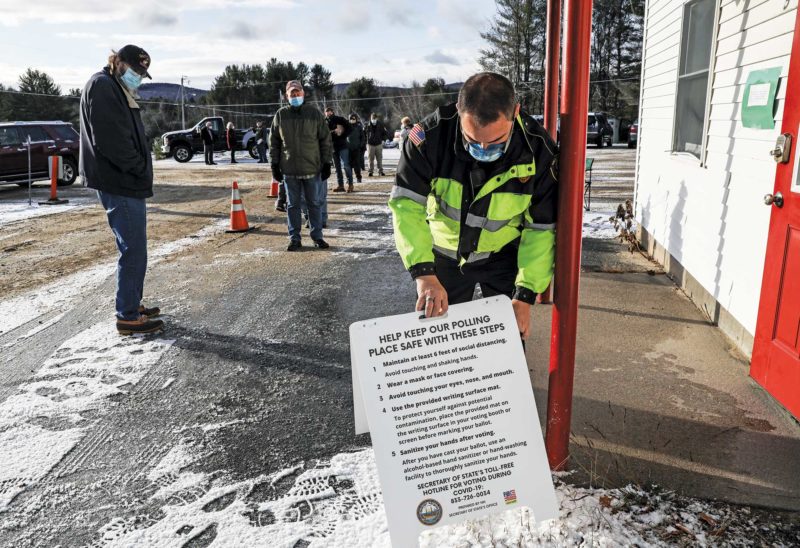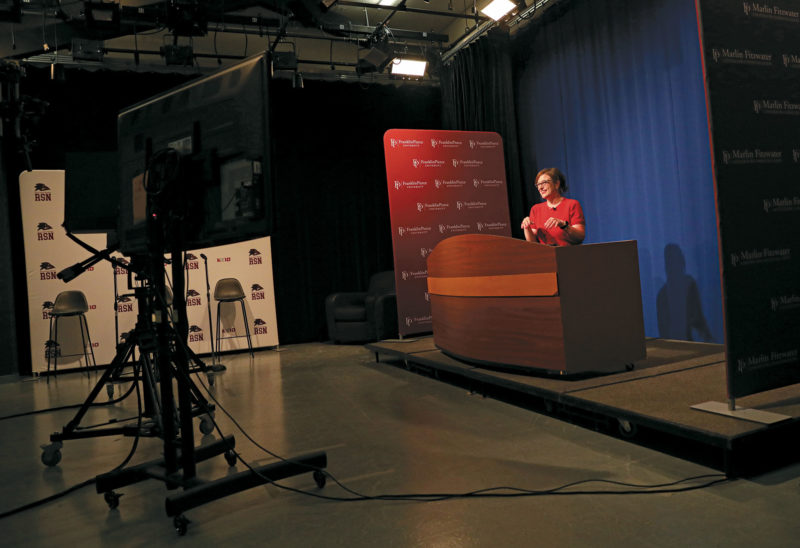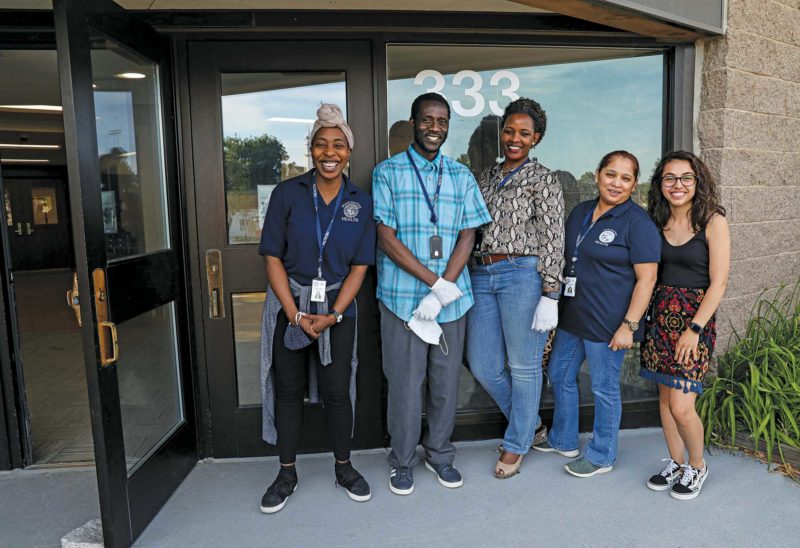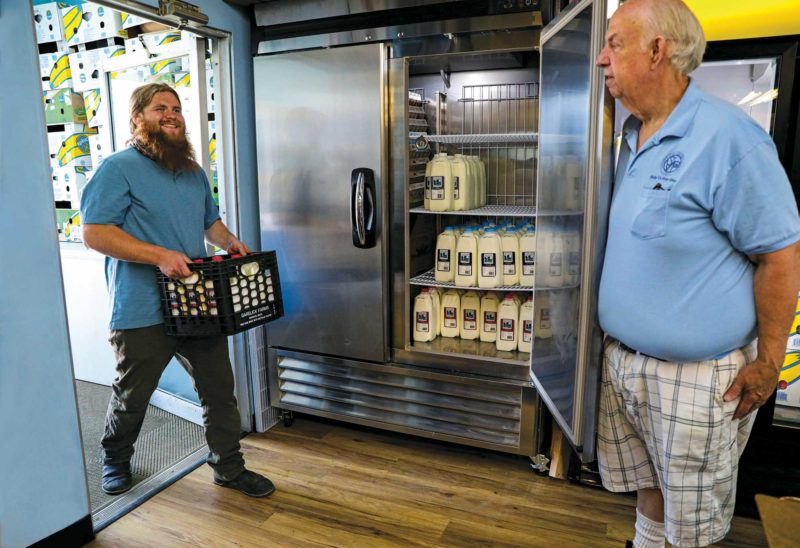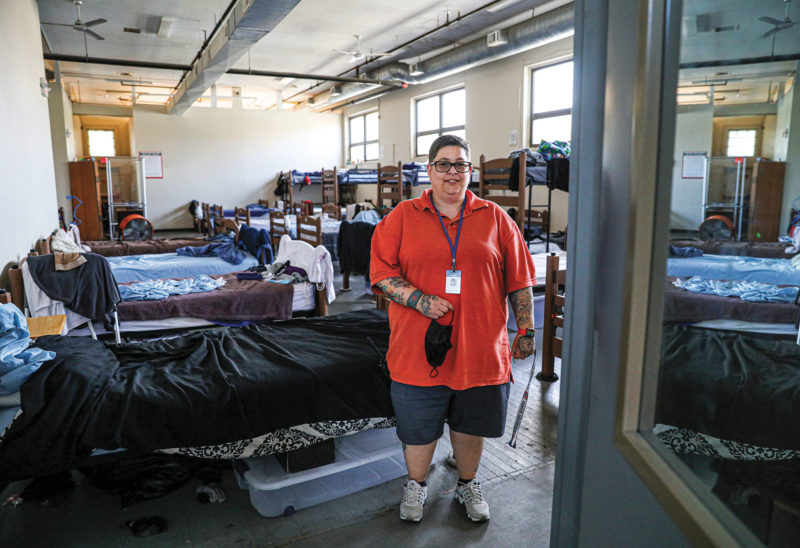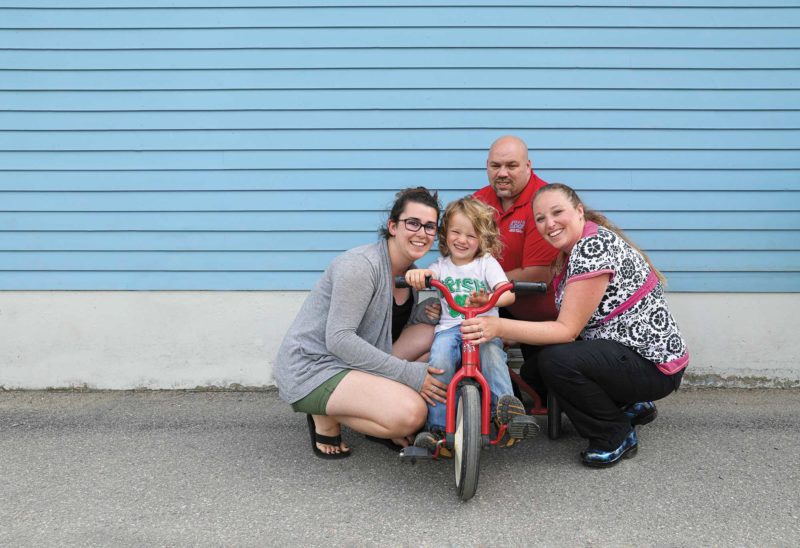Normally, school buses carry precious cargo — New Hampshire’s kids. During this very abnormal time, buses have been carrying a new precious cargo — food for kids and their families.
When the COVID-19 pandemic closed school buildings, students lost more than access to classrooms. Many lost breakfast and lunch. In response, schools, nonprofits and other organizations mobilized overnight to make sure children and families do not go hungry.
Around New Hampshire, 25 percent of school children, more than 38,600, quality for free or reduced-cost meals at school — meals they need to thrive and grow. The percentage is more than double the state average in dozens of schools and triple in a handful. Some students also receive food for weekends.
In March, nearly all school districts shifted to continue providing meals, often delivering them on school buses. Nonprofits stepped up — some with emergency COVID-19 grants from the New Hampshire Charitable Foundation — expanding weekend meals programs, beginning summer programs early and serving substantially more families.
Schools are securing waivers to continue feeding students through the summer, while other groups and government agencies also are responding to an unprecedented demand. Many programs expanded services beyond children who met income requirements for free or reduced-cost meals.
“We’ve never served this many people at this time of year before,” said Deb Anthony, executive director of Gather, based in Portsmouth.
Calling this a time of “great fear, growing uncertainty and historic crisis,” Gather activated its Meals 4 Kids summer and school vacation meals program early — in mid-March — in Portsmouth, Seabrook, Hampton, and Rochester.
Typically, families in need supplement school breakfast and lunch programs with food from Gather’s Pantry Market in Portsmouth — a location that could not safely accommodate the increasing numbers of people thrown into turmoil by the pandemic. So, in partnership with community and school officials, Gather began delivering fresh food for children to convenient locations in the four communities. Each delivery includes at least 10 meals per child, plus snacks.
Many children don’t have adequate parental supervision or consistent transportation to be able to pick up meals daily or attend daily “eat on site” meals, which Gather has also provided in the past. With help from the Charitable Foundation and other funders, Gather’s approach of bringing a week’s supply of food to vulnerable kids ensures more won’t go hungry, Anthony said.
In an average week, Gather delivers groceries to 626 kids. From March to mid-May 19, that equaled nearly 109,000 meals.
Even with schools providing meals, Gather is serving at least the same number of children as in the summer when school lunch programs close. In Seabrook, the group served the highest number of children ever.
“These are families that are living on the edge and it doesn’t take a lot to throw their lives into a tragedy,” Anthony said. She is concerned about what will happen when temporary enhanced benefits like food stamps and unemployment end.
Around the state, Got Lunch! programs and others made quick adjustments to make sure that children were getting the food they needed. Foundation grants to such programs, and to the New Hampshire Food Bank, helped fill the gap.
Got Lunch! Newport more than doubled the size of its program with help from the Foundation grants — including from the Foundation’s Newport Charitable Fund and Community Crisis Action Fund. Some local residents and business owners also contributed part of their stimulus checks to the effort.
To supplement the Newport School District meals programs, Got Lunch! Newport continued to focus on breakfast and lunch for the families of school-age children who qualified for free and reduced-cost meals.
“We have never simply been a lunch program,” Executive Director Charen Urban said one recent morning, after carrying about 15 loads of groceries to the fridge at the South Congregational Church in Newport, where the volunteer group is based.
COVID hit just after February school vacation, when the program was serving 42 families, including 102 children. By June, the number had reached more than 80 families and more than 180 children.
Got Lunch! Newport provides 30-35 pounds of food to each family, every other week. Volunteers make deliveries in Newport, Lempster, Goshen and Croydon. Sunapee families will be added during the summer.
“Many of our families have part-time employment, where they don’t get benefits and their hours are not guaranteed,” Urban said. “Many of our families are grandparent-led families, so we knew the need was going to be extraordinary with the children being home all the time.”
She said cooperation from the schools and support from generous foundations means “there will be a lot less suffering this summer.”
In the North Country, the Episcopal Diocese of New Hampshire runs a weekend Backpack Program — sending children home with enough food to last between school meals, with some to spare. The program typically provides food on weekends and school vacation weeks to 225 students and their siblings in five elementary schools. The Foundation’s Neil and Louise Tillotson Fund has been a longtime supporter of that program — including with a recent grant as the program adapted to continue serving vulnerable families during the pandemic.
“We provide breakfast foods that are more than you would consume on a weekend, so we help with breakfasts through the entire week,” said Richard Carlson, who coordinates the program.
This spring, the schools in Groveton, Stark, Stratford, Lancaster and Whitefield began delivering lunches they prepared to students via school buses. For the first few weeks of the emergency, the schools also delivered nearly 2,900 breakfasts and snacks that the Backpack Program had received from the New Hampshire Food Bank.
The Backpack Program returned to its weekend service in early April. But, this year, because of the greater need and because other organizations’ congregate meals have had to temporarily close down to comply with COVID restrictions, it will continue through the summer.
Recently, after returning home from delivering 100 bags of food, Carlson said that in April and May, volunteers and staff delivered 6,370 meals, plus emergency food bags containing enough food for 1,126 meals. Each family also receives fresh produce every other week.
Carlson praised community cooperation and support from schools, businesses, the New Hampshire Food Bank and local food pantries who recognize their important mission.
“The only way kids are going to have full opportunities is to start with an education,” he said. “If they are not fed properly and don’t have the proper nutritional levels they are not going to be able to take advantage of opportunities when they come, so I think it serves us now and hopefully will serve them for their lifetime outcomes.”
Charitable Foundation Director of Education and Career Initiatives Michael Turmelle said the Foundation is working to identify those SAUs around the state where small grants could help jump-start a summer meals program, or where nonprofits could fill the gap.
“So many schools and nonprofits have done an amazing job making sure that kids who rely on school meals did not go hungry when schools had to close down because of COVID,” Turmelle said. As schools close for summer and families continue to face the economic fallout from the crisis, Turmelle said, “Summer meals programs are going to be critical to keep those meals coming to the kids who need them.”
For more information, school superintendents and nonprofits working to start summer meals programs are invited to contact Michael Turmelle, Charitable Foundation director of education and career initiatives at Zvpunry.Ghezryyr@aups.bet.

